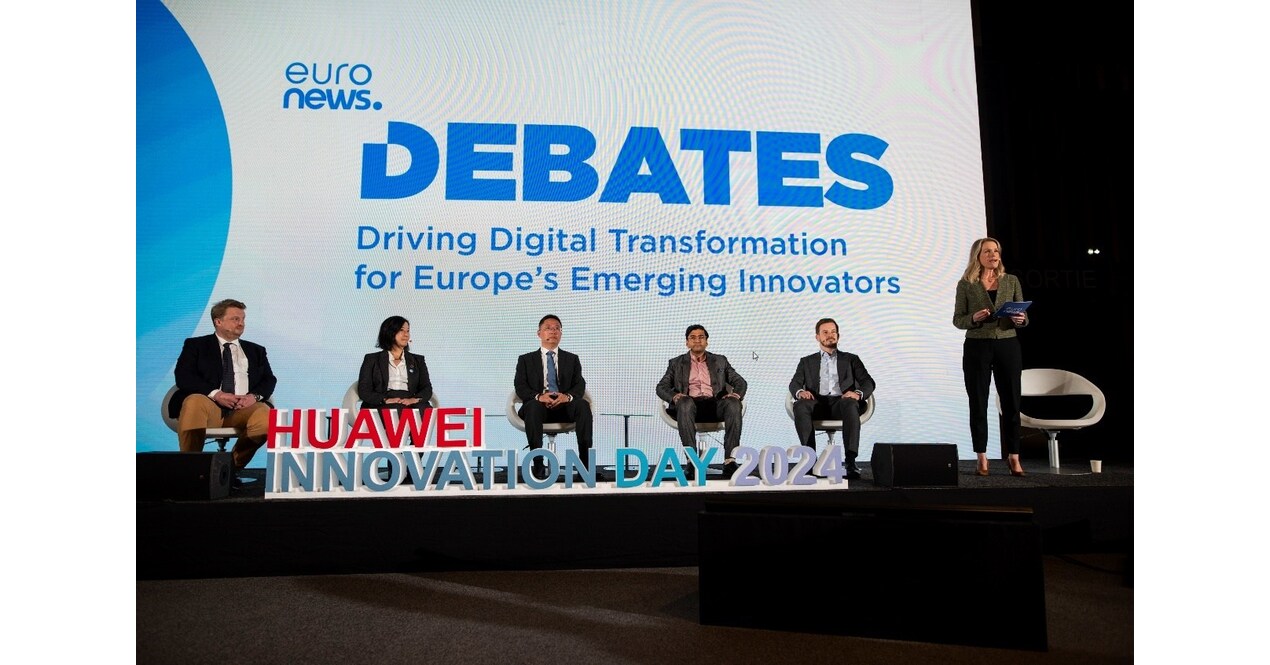Businesses, unions clash on Draghi’s call to cut EU regulations

Mario Draghi’s call for EU policymakers to reduce companies’ regulatory burden to boost the bloc’s faltering competitiveness was praised by European business groups on Monday (9 September) but criticised by Europe’s largest trade union confederation.
The former European Central Bank president’s hotly anticipated report on the future of EU competitiveness repeatedly emphasises the “regulatory burden” European firms bear.
It also points to the “asymmetries in regulation” faced by EU firms relative to their peers in China or the US, which help create an “unlevel global playing field” for the bloc’s “otherwise productive companies”.
“The regulatory burden on European companies is high and continues to grow,” Draghi writes, adding that between 2019 and 2024, roughly 13,000 acts were passed by the EU compared to 3,500 pieces of legislation and 2,000 resolutions at the US’s federal level.
President of the influential lobby group BusinessEurope, Frederik Persson, praised Draghi’s “call for a frank and urgent discussion” on the EU economy’s challenges.
“We will pay close attention to the call for a renewed industrial strategy, which rightly prioritises measures like incentivising productive investments in Europe, lowering energy costs or reducing regulatory burdens on companies,” Persson said.
Wim Mijs, CEO of the European Banking Federation, similarly endorsed Draghi’s “strong supporting signals” for a “regulatory shift” in Europe’s banking sector as well as the Italian’s proposal to deepen Europe’s single market for capital to boost private investment.
“To support a strong economy, we need an internationally competitive banking system within the EU, as well as an assessment of the banking regulatory framework,” Mijs said.
Petri Salminen, President of SMEunited, representing small and medium-sized enterprises from over 30 European countries, said that Draghi “identifies correctly the problems Europe has with productivity and competitiveness”.
“The most important aspects for SMEs in this context are the reduction of regulatory and administrative burdens, a level playing field with big business, a better functioning single market and more reciprocity and fairness when it comes to relations with third countries,” Salminen said.
Jean François van Boxmeer, chair of the European Round Table for Industry, described Draghi’s “vision” for Europe as “potentially transformative”.
“In considering various dimensions of the EU’s current capacity to compete with its peers, [the report] succeeds in advancing an ambitious, informed vision of an EU rooted in better regulation, through more coherent operation that makes better use of existing tools,” he said.
‘The focus on deregulation must be rejected’
However, Esther Lynch, general secretary of the European Trade Union Confederation (ETUC), representing more than 45 million European workers, vehemently denounced the report’s emphasis on “deregulation”.
“The focus on deregulation included in the report must be rejected, including all attacks against ‘gold-plating’,” Lynch said, referring to member states’ practice of imposing additional regulations beyond those required by EU directives.
“We need a regulatory environment that protects workers and trade union rights,” she added.
Lynch’s criticisms echo those previously levelled by the ETUC at a previous report on the EU single market by another former Italian Prime Minister, Enrico Letta, which blamed “over-regulation” in the bloc for “inadvertently favour[ing] non-European companies that are not bound by the same stringent rules”.
Draghi attempts to ease workers’ concerns
Lynch, however, praised Draghi’s call for additional investments of up to €800 billion per year to finance the green and digital transitions, although she warned that such funds should “come with strings attached to ensure quality jobs and to ensure social progress”.
She also pointed to the “positive” fact that Draghi’s report “recognises that Europe should not try to compete on a race to the bottom on pay”.
Draghi himself went to great lengths to assuage workers’ concerns during his public presentation of the report on Monday.
“It’s natural that after 40 [or] 50 years of talking about competitiveness [people think it might translate into] lower salaries. Nothing of the sort is in this report,” he said.
“The reason is very simple: that’s not where competitiveness is actually playing. It’s not primarily [due to] labour costs”, he added.
Draghi instead stressed that Europe’s faltering competitiveness is predominantly a result of lagging productivity, which he attributed to the bloc’s insufficient digitalisation.
“As a matter of fact, in the European Union, productivity has been slightly better than it was in the United States if you take the high-tech sector out. So the answer cannot be labour costs, [labour market] flexibility, and all this. It has to be high-tech,” he said.
[Edited by Alice Taylor-Braçe]
Read more with Euractiv
Related
Beko Europe announces 1,935 redundancies: What is the group’s plan?
Beko Europe has announced the closure of two sites resulting in nearly 2,000 redundancies. ADVERTISEMENTAt a meeting in Rome with Unions at the Min
Ford to cut 4,000 jobs in Europe and Britain, cites…
Open this photo in gallery:A Ford vehicle at the Canadian International Auto Show, in Toronto, on Feb. 15.Cole Burston/ReutersFord Motor Co. F-N says it will re
European stocks fall to three-month low amid geopolitical jitters
The European markets briefly hit a three-month low due to heightened tensions in the Ukraine-Russia war. Investors shifted towards safe-haven assets, w
Hotel booking data reveals ‘summer-holiday… | Travolution
HotelHub, a hotel technology solution provider for travel management companies and their corporate customers, has released its HotelHub Index for Q3 2024.The an



_w=1200_h=630.png?v=20230522122229)









